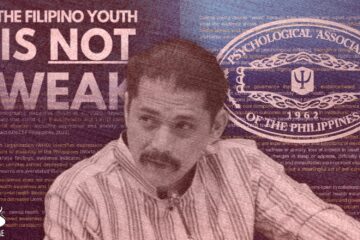
A FORMER solicitor general stressed the country’s need for an institution that would combat the spread of fake news.
Atty. Florin Hilbay, who has also raised concerns on the same issue in a Senate hearing, said an institute for the integrity of information should be established because it is difficult for “traditional checks-and-balances” bodies such as the Office of the Ombudsman and the press to work in a climate of unverified information.
“You need to have that kind of institute to protect the value of information. […] Truth is important for opinion formation, and if the value of truth goes down, your opinions, the quality of your information will also go down,” Hilbay said.
“This is a problem that was never envisioned by our Constitution—a phenomenon where the executive department seems to have recognized the value of disinformation for the purposes of its agenda,” he added.
Hilbay said any false information coming from public officials will adversely affect the country, dictating economic concerns, foreign diplomacy, and the direction of the government.
In May, Presidential Communications Operations Office Assistant Secretary Mocha Uson posted in her “personal blog” a photo of Central American policemen—which she mistook for Filipino soldiers—and urged Filipinos to pray for the members of the Philippine Army.
Uson in September also shared on Facebook a post by “Davao Breaking News-2” which included a photo showing the account number of Sen. Antonio Trillanes IV in DBS Bank in Singapore. Later, President Rodrigo Duterte claimed that he only invented Trillanes’ account.
Hilbay said Facebook should be regulated. “[Facebook] make[s] a lot of money out of information, and fake news, when it’s shared or had been shared, is money for Facebook.”
He cited the social networking site’s “boost post” feature as a tool that allows fake news to “rain and spread all over.” “Facebook will say, ‘We’re just carrying the signal. […] We don’t care about the quality of information.’ That is a problem because even if Facebook is agnostic about the truthfulness of the information, the effect of that information on our conversation is massive.”
Collective action
Mark Angelo Roma, founding president of Young Filipino Advocates of Critical Thinking urged the youth to take collective action in combatting false news.
“The battle against fake news and irresponsible social media use is a long way to go. Our simple actions is just a drop in the ocean but if we come together, if we join our hands together, and call out fake news and start talking about it even in the simple things we can do, we will become successful. We will put it down. We will bring about positive change,” Roma said.
Noelle Capili, a Thomasian alumna activist, reminded Artlets to educate themselves first on the facts of a particular issue before commenting and sharing online posts.
The forum titled F5: Media Law and Social Media Ethics Seminar was held at the Thomas Aquinas Research Complex Auditorium on Oct. 18 and was organized by the Legal management Society. F



